Brian Deer is an award-winning investigative journalist best known for his coverage of the pharmaceutical industry. In this episode, he and Peter discuss the content of his book, The Doctor Who Fooled the World: Science, Deception, and the War on Vaccines, which exposes the complex and disturbing story behind the infamous 1998 Lancet paper by Andrew Wakefield linking the MMR vaccine and autism. Brian explains how doctors led by Wakefield, a lawyer, and an anti-vaccination parents’ group worked together on a study to validate their preconceived belief that the MMR vaccine caused autism. He reveals what happened behind the scenes as the study was carried out, explains problems in the lab, and discusses inconsistencies in the analysis. In the end, this is a story that serves as a cautionary tale about the consequences of science driven by an agenda rather than by a spirit of open inquiry.
Subscribe on: APPLE PODCASTS | RSS | GOOGLE | OVERCAST | STITCHER
We discuss:
- How Andrew Wakefield’s flawed approach to scientific research led to the belief that vaccines cause autism (3:25);
- The importance of following the scientific method, and how Wakefield twisted the science to link measles virus to Crohn’s disease (14:15);
- The backstory behind Andrew Wakefield’s infamous 1998 Lancet paper linking the MMR vaccine and autism (26:45);
- The many flaws and disturbing aspects of Wakefield’s study: suffering children and failure to do strain-specific sequencing (45:15);
- The epicenter of fraud: Bogus PCR testing furthering the belief that measles virus from the MMR vaccine caused autism (1:00:00);
- Additional issues that contaminated the study results (1:22:15);
- Discovering the misrepresented medical records for the kids involved in the study leading to the retraction of the Lancet paper and Wakefield losing his license (1:31:00);
- The resurgence of the anti-vaccination movement, Brian’s motivation to write the book, and parting thoughts (1:36:45); and
- More.
How Andrew Wakefield’s flawed approach to scientific research led to the belief that vaccines cause autism [3:25]
- This is not just a discussion about vaccines but also about fraud in science
- Vaccines can be a polarizing issue, but it’s important to get to the bottom of the story
- Peter reached out to Brian after reading his book, The Doctor Who Fooled the World: Science, Deception, and the War on Vaccines, twice
“I believe too many people enjoy the convenience of opinion without the inconvenience of thought.” —Peter Attia
Andrew Wakefield
- To understand the origin of the belief that c, one must understand the work of Andrew Wakefield
- Peter urges listeners to read Brian’s book in addition to the podcast
- In some countries many people believe that autism is likely or probably caused by vaccines
- And it’s not an uncommon belief in US
- Though Brian says not so much in the UK anymore
- Idea that vaccines might cause autism became prominent in early 1990s
- Before Brian’s book, Peter assumed Andrew Wakefield was “a misguided and not particularly competent physician,” but now he realizes that it goes well beyond that
- Brian wanted to follow the arc of Wakefield’s development and planned to give him the benefit of the doubt in his early years
- Wakefield went to Canada and started training in surgery in late 1980s, but despite a long-term goal to be a surgeon for unknown reasons he “moved very quickly” away from surgery into research
- Brian didn’t find the story of a good guy who was misguided but rather of a guy who became obsessed with an idea that he strangely latched onto and refused to let go
- In Toronto where he trained, they were investigating bowel transplants to treat Crohn’s disease (“an appalling, ulcerating, blistering, burning” bowel disease of unknown origin)
- Theory was that it was an allergic reaction inside the gut, but Wakefield wondered if it could instead be a disease of the gut blood supply caused by an infectious agent
- This was the late 1980s when AIDS and infectious agents were in the news
- Wakefield got a job in London at a “third rate” hospital, Royal Free in Hampstead North London
- Was still on payroll of Wellcome Trust, which today is a great health-related charity that has enhanced the UK’s coronavirus response, but then was the grant-branching arm of a pharmaceutical company
- Wakefield knew the funding would eventually go to the med school and wanted to use funding for his Crohn’s idea while he could
- Wakefield went through a two-volume encyclopedia of viruses called Fields Virology and saw that acute measles can be found in the intestines, so he decided to focus on measles
- In Crohn’s disease, get little ulcers in the gut
- In measles, see Koplik’s spots
- So he concluded that measles was the cause of Crohn’s disease
- However, during infection, measles is found everywhere in the body, not just the gut
- But Wakefield decided to “prove” that measles caused Crohn’s disease
- Wakefield had a surgeon’s mindset rather than a researcher’s mentality
“In science, courage isn’t about proving yourself right, it’s in your efforts to prove yourself wrong. . .to try and refute your own hypothesis.” —Brian Deer
- In science you must start with a hypothesis and then collect data about it in a way that tries to disprove it
- Wakefield never did second step; never doubted or questioned his ideas
- This is “an extraordinary flaw of character,” especially in a scientist
The importance of following the scientific method, and how Wakefield twisted the science to link measles virus to Crohn’s disease [14:15]
- Peter says Wakefield’s approach reminds him Richard Feynman saying something like “the first principle in science is not to fool yourself”
- Even the word “proof” is loaded in science
- You look at a body of experiments and ascertain which way the evidence points
- Peter says it’s not just surgeons but doctors in general who don’t get a lot of training in the scientific method
- Those who do research get it
- but not so much in med school generally, where you learn a bit of the history and science and a lot of facts but not really about the scientific method
- Scientific method: generate a hypothesis, figure out what the right questions are, design experiments to test it, look critically for all the ways you could be fooled
- Peter says it’s hard to learn without good mentoring in a lab
- Brian says medicine is like a European learning Chinese – you don’t question what you’re taught, you just learn it
- Wakefield’s favorite word was “consistent”: this particular finding or data point was consistent with his hypothesis
- But consistent means nothing: could say orbit of Mercury is consistent with inflammatory bowel disease (IBD), or consistent with Peter and Brian talking
- Peter says it’s similar to saying “associated with,” which means nothing
- Being “consistent” doesn’t prove the hypothesis
- Wakefield “never stopped to question at any stage, or to carry out any experiment, or research, or anything that would conflict with that commitment to the idea that measles virus was the cause of Crohn’s disease”
- Wakefield used immunohistochemistry, a microscopic staining technique
- Take tissue sample, use antibodies to stain it in a certain way, then look under a microscope
- Will change color if sample has antigen you stained for
- Polymerase chain reaction (PCR) technique: when this technique was used, could not find measles in Wakefield’s study samples
- Wakefield said PCR wasn’t sensitive enough, which made the American undergraduate students Brian told this story to laugh
- Doesn’t make sense to suggest you could find something under a microscope that you cannot find at a molecular level
{end of show notes preview}
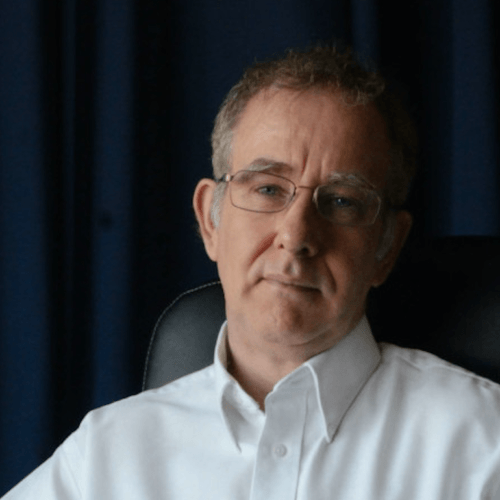
Brian Deer
Brian Deer is an award-winning investigative journalist for the London-based The Sunday Times who focuses on medicine, particularly the pharmaceutical industry, and social issues; topics he has covered include the withdrawn Merck painkiller Vioxx, an ill-fated drug trial of an experimental monoclonal antibody, and false claims about a link between the MMR vaccine and autism. The author of The Doctor Who Fooled the World: Science, Deception, and the War on Vaccines, Deer won a British Press Award in 1999 and 2011 and the annual HealthWatch award in 2011. He is a graduate of the University of Warwick.
Website: briandeer.com
Twitter: @deerbrian


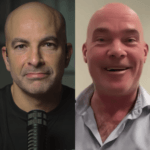
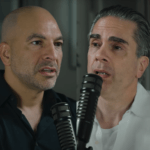
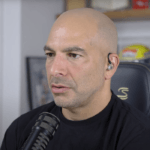
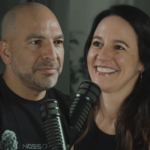
Dr Attia,
As a Functional Medicine Certified Health Coach who has been involved with the conventional, biomedical, alternative and neurodiversity ASD communities since the mid-90s, I am much gratified by your clear-eyed devotion to the science and courageous search for truth above fear and politics.
Thanks for your service to us all,
Jacalyn Brecher
NBC-HWC, FMCHC, MBA
NYC
With regards the Brian Deer podcast, since your podcast is driven by a spirit of open inquiry, the next logical scientific step is to invite Dr Andrew Wakefield on to get his side? Let your audience decide. Even better you could also invite Professor Walker-Smith, who also lost his license along with Andy Wakefield for the same study, only to be fully reinstated and the charges fully quashed in a court of law. Or else can we say your podcast driven by an agenda and not the spirit of open inquiry?
You clearly didn’t listen to the podcast. Wakefield will not be interviewed by a rational science-driven host, because he’s incapable of giving honest answers. It’s pathetic that you mention agendas, when clearly Wakefield or “Andy” (as you affectionately refer) fabricated the science for his agenda. Which is exactly why he is no longer “Dr” Andrew Wakefield, having been stripped of his credentials by his peers because he is a fraud. I truly believe Andrew Wakefield is truly evil.
Re: Margs: “First they ignore you, then they ridicule you, then they fight you, and then you win.” You are either incredibly lost in what’s happening or you are a paid BigPharma “wending machine.” Here is the key point: No one cares what you think. The fact that Attia (who charges for most of his podcasts) is willing to make 1 hour 49 min. long podcast free of charge attacking Wakefield who fights the status quo tells most of us all we needed to know.
The Drive is always available for free on Podcast (apple) and Spotify and probably other platforms I don’t use. A lot of them are now even available on youtube. I have never given any money to Pete Attia to have the luxury and benefit of his and his guests’ insight. I *have* gone deep on my own to understand some of the topics, and this one in particular is fascinating. I cannot see where you find fault in it 🤷🏼♀️
And you obviously didn’t read nor comprehend my comment….” Professor Walker-Smith, who also lost his license along with Andy Wakefield for the same study, only to be fully reinstated and the charges fully quashed in a court of law”. One regained his credentials whilst the other was unable to challenge the verdict because his insurance wasn’t enough to cover the costs. Even if you believe Andy Wakefield is evil (interesting that all the subjects parents fully supported him), the simple understanding that Professor Walker-Smith, Wakefield’s co-defendant, had all charges quashed should make any free-thinking intelligent individual searching for truth want to hear the other side.
Martin. You are wrong. Both Walker-Smith and Wakefield were fully insured by the same organization: the Medical Protection Society. Walker-Smith explained: “My case was related to entirely different issues to those that concerned Dr. Wakefield.” Sadly, you’ve been lied to. The position is explained in the book.
Loved the podcast and have started the book. I would love for you to bring on Robert Kennedy Jr or Wakefield as I think learning about both sides of the argument is more educational for your audience.
This is nothing but character assassination. True interview would give Dr. Wakefield platform to respond to the accusations. This is one sided mobbing. We all know the uselessness of PCR and its infamous FP results in the setting of Covid-19. Many arguments in this interview do not hold. Very poor interview.
What I find so egregious is the part where Wakefield was portrayed as essentially a child abuser! To my knowledge, these were medical procedures that were done on these children.
I had several medical procedures as a small child that could be painted as child abuse at the hands of modern medicine.
When I was 7 years old, I laid in a hospital bed prior to a surgery without a guardian in the room. Two nurses entered and gave me no indication of what was about to happen. They pinned me to the bed and simultaneously jammed 2 enormous needles into my thighs.
Was I a victim of child abuse?
I had a severe allergic reaction to the drugs they gave me, so more drugs were administered to counter the reaction, but I had a severe reaction to those drugs as well.
Was I a victim of medical experimentation? …Certainly sounds like experimentation.
Three years earlier when I was age 4, I was given a tonsillectomy. Why? Because my older sister needed her tonsils out, so I went with her. My uninfected tonsils were removed merely as a precautionary measure.
Unnecessary medical procedure involving general anesthesia on a preschooler? …Without a shadow of a doubt!
Medicine can be brutal, particularly to a child!
But this is ok?
The following video is a portion of a Jan. 11, 2018, legal deposition of “acclaimed” vaccinologist Dr. Stanley Plotkin, who is widely considered a godfather of modern vaccine programs. In the video, we hear an astute attorney asking Plotkin revealing questions about vaccination research practices. Plotkin’s answers deliver a series of devastating truth bombs:
Q: Have you ever used orphans to study experimental vaccines?
A: Yes.
Q. Have you ever used the mentally handicap to study experimental vaccines?
A: (Hesitant until he was cited from his own writings, whereby he confirmed.) Yes.
Q: Have you experimented on the children of mothers in prison or jail?
A: Yes.
Then comes the doozy at minute 00:01:20 in which Dr. Plotkin acknowledges that he expressed a preference for experimenting “on children and adults who are human in form but not in social potential.”
This was my favorite PA podcast so far, but peter missed a great question, ‘Has anyone else ever tried to replicate Wakefields experiment?’ You know, send the colonoscopy tube up a child’s bottom, take a biopsy, look for the measles vaccine? Or is that just such a horrible procedure that nobody will ever attempt it again?
We shouldn’t lose sight of the wood for the trees. Over the last year, the promotion of untested and damaging lockdowns even once it became clear that their effect was minimal, the deliberate fear campaigns, the systematic sidelining or banning of apparently safe and effective non-vaccine therapies have, amongst many other things, caused more people to miss basic vaccinations than Andrew Wakefield ever will https://about.kaiserpermanente.org/our-story/health-research/news/child-vaccination-rates-declined-during-covid-19-pandemic
Agree. I couldn’t help but notice that many of the things Deer was slamming Dr Wakefield for are happening today in response to the pandemic. Plus the whole interview was so one sided it was hard to listen..,
Far too few people seem to be aware of the fact that Wakefield wrote a book, published in 2011 and entitled ‘Callous Disregard’ (an accusation levelled at Wakefield by the judge in the BMC hearing during his summing-up). It is available on Amazon.
In this book, Wakefield gives a very detailed, incisive, wide-ranging and actually quite disturbing account of the events surrounding the publication of the 1998 Lancet paper and its aftermath.
It includes a robust dismissal of Deer’s claims, and commentaries on extensive extracts from the transcripts of the BMC hearing. It also includes significant background material on the alarming introduction of MMR into the UK. It is very extensively referenced.
It seems to me that anyone who wants to express an opinion on Wakefield must read this book (as well as Deer’s).
It’s not clear to me that Dr Attia has taken the trouble to read Wakefield’s book. If not, he should do so.
I very much support the idea of Attia interviewing Wakefield, but I’m willing to bet that won’t happen.
I’ll try to be brief and explain this, out of respect for those who’ve come here with the sincere belief that The Doctor Who Fooled the World, or my journalism generally, is untrue or unfair.
Unlike the things Wakefield says in books and countless videos, the story I tell is true. Unlike his output, which is verified by nobody (not even his famous and fraudulent paper, which was not checked by any of his coauthors, who didn’t even know which child was which), my investigation was supervised and exhaustively checked by senior editorial and legal staff of The Sunday Times, Channel 4 Television (A UK national network with statutory duties of truth and fairness), The British Medical Journal, and Johns Hopkins University Press (JHUP). None of these worked in consultation with the others.
Following threats by Wakefield last year, the publishers (and also Scribe, my British Commonweath publishers) put the book out to independent legal review by defamation specialists in New York and London. It was peer reviewed at the outline and final form.
I’ve been deposed under oath for six-and-a-half hours by Wakefield’s lawyers, during which his lawyer shouted at me (in evident frustration that I was in no way on the back foot) and, when it came to the critical part of my evidence, Wakefield left the room: a strange response from someone who you would think would be keen to hear just exactly what was the case made against him.
The investigation was funded entirely by the above (plus legal costs paid to me by Wakefield’s lawyers to cover the defense of my website against vexatious litigation). Wakefield has repeatedly spread the lie that I’m supported by the drug industry. In fact, I’ve a long history of investigating that industry (check my website) and revealing malfeasance. I’ve a national journalism prize stating that I was probably “the only journalist in Britain that polices the drugs companies.” Oh, irony.
The book’s final manuscript was supported by more than two thousand document references, which JHUP had checked against those documents by two members of staff: a unprecedented process that took months. Moreover, my contract with the publishers includes an express undertaking that the story is true. Were that undertaking false, JHUP and Scribe could pulp my book and send me the bill.
Were the story to be false, I would face professional and personal ruin.
Some people may still find the position hard to believe: that this man Wakefield would travel America for twenty years, lying and lying again to parents, often parents of children dealing with complex developmental issues, so as to enrich himself. Yes, he’s plausible. “Call me Andy.” But that is at the heart of the case against him. The Doctor Who Fooled the World is a well-chosen title.
If you still find it difficult to believe what I say, why not sit back and think through the implications of (a) what would happen to me were I lying, and (b) what it means if I’m not (as, indeed, I’m not.)
Dear Peter, dear Brian,
after realising that my first comment here (on the Levitt episode) was critical, and then reflecting that 95% of your content was superb, educational and nothing I disagreed with, I want to take the opportunity to also give positive feedback.
This podcast was so brillant with regards to its depth (at place where necessary) and also “narrational structure” which I’m sure is partly based on the structure of Brian’s book, which I will read. It is a rare feat to produce something that communicates a difficult topic so clearly.
I felt educated and simultaneously really really angry – also a rare combination.
Thanks to Brian for dedicating himself to the truth. Thanks to Peter for providing the stage and being a great communicator.
Science rules.
I’m a little confused about something. Perhaps someone who listened to this podcast can answer this.
O’Leary had a state of the art research machine that was specifically a research tool. Peter discussed that a clinical machine should have been used because the research machine was not rated for clinical diagnosis.
Was Wakefield acting as a researcher or doing a diagnostic assessment?
I adore Peter Attia; his podcast is unparalleled!
I just started Brain Deer’s book and he is a very gifted writer! Andrew Wakefield was a fanatic and a poor scientist who produced fraudulent data!
Perhaps?
Deer has assured us that everything in this book is the absolute truth! He stands on the shoulders of John Hopkins and has thousands of verified documents and several attorneys. That’s lovely for him.
The truth can be easily be contorted and data Cherry-picked and decent people can be made to look horrendous.
Here are a few things that occurred during the interview that are the truth!
1. Wakefield is basically described as strangely latching on to the preposterous notion that infection causes disease.
2. Deer repeatedly tells us what ran through Wakefield’s mind, but we are assured that everything that comes out of Wakefield’s mouth is a lie, accept for “a remarkable bit of history”! A story that only one person in the world ever heard and who was the source of this story? The pathological liar, Wakefield.
3. According to Deer, the Epidemiology of Crohn’s disease is just totally baffling and bizarre. “And no matter how many books you stack up on to a table and try to understand it, you just realize, It’s just better to walk away and just believe it.” (That’s my favorite part in science, the giving up!)
4. Wakefield was too foolish to realize that Crohn’s disease is impossible to unravel, so Deer laughs that Wakefield went to a medical library. Deer has already explained to the listener …answers can’t be found in books.
5. At the end of this interview, Peter asks Deer to talk about the CDC whistleblower. Deer’s immediate reaction was “to be honest Peter, I think. I’m getting a bit tired now. we’ve been talking for more than 2 hours.” An unbelievably strange response from someone who should be keen on discussing an important element in his book.
We are to believe that there are only bad seeds; scientists who don’t understand basic scientific principles and are committing fraud! There can be no other corruption in medicine and science?
The fact is there was a massive corporate interest here!
Is everyone suppose to pretend like this is irrelevant?
Please Peter, stop being so dazzled by the science presented to you and speak to some of these other players including Andrew Wakefield!
If you would be a real seeker after truth, it is necessary that at least once in your life you doubt, as far as possible, all things. -Rene Descartes